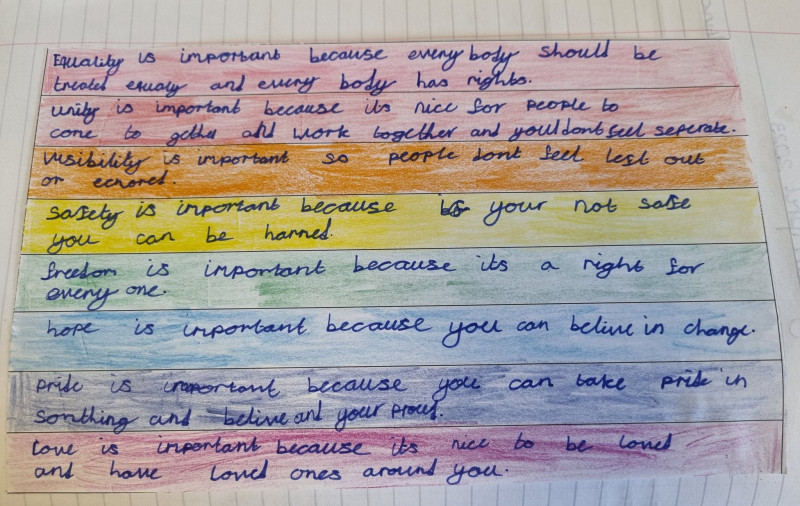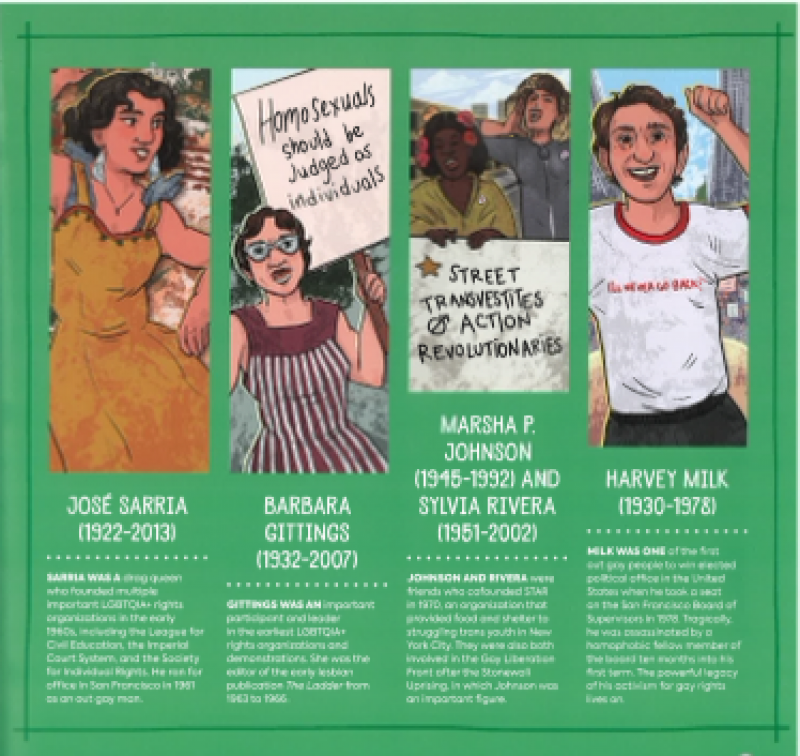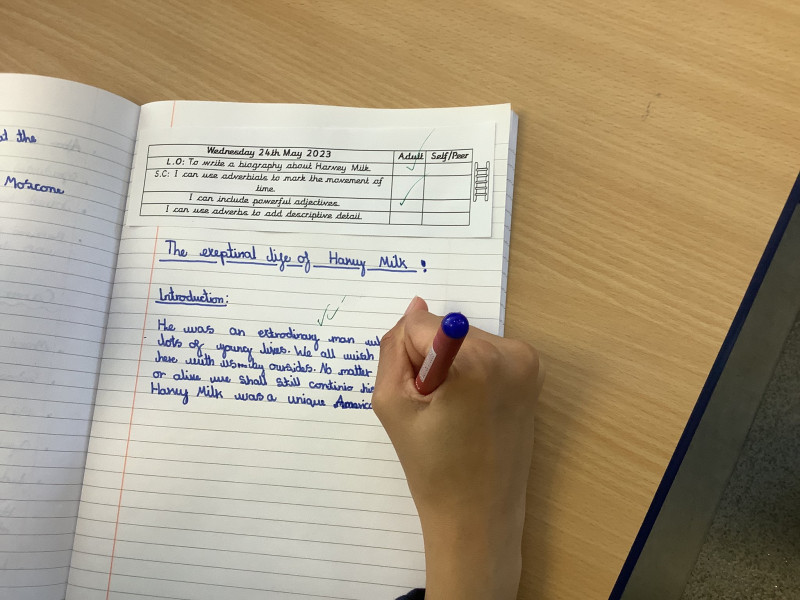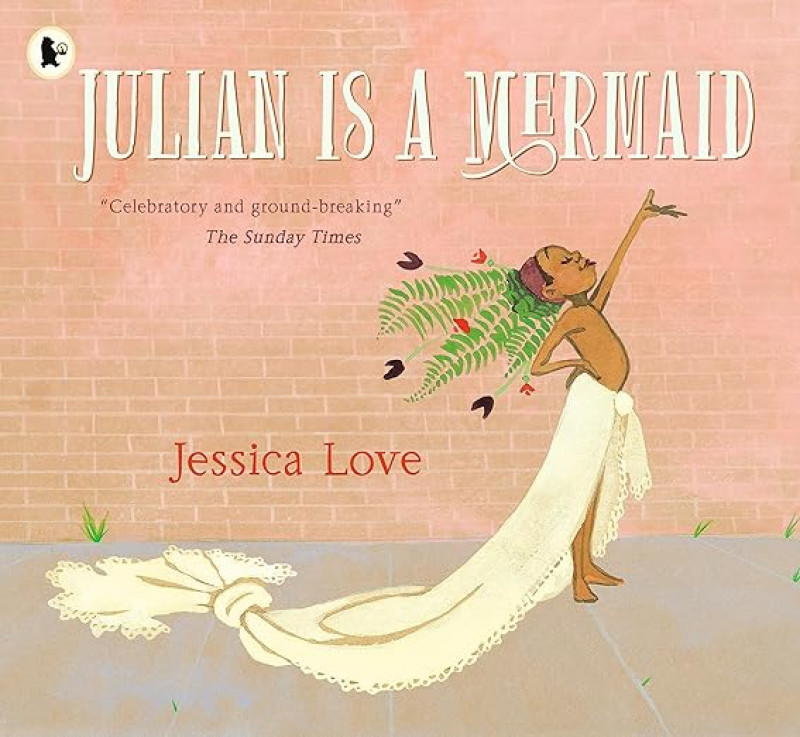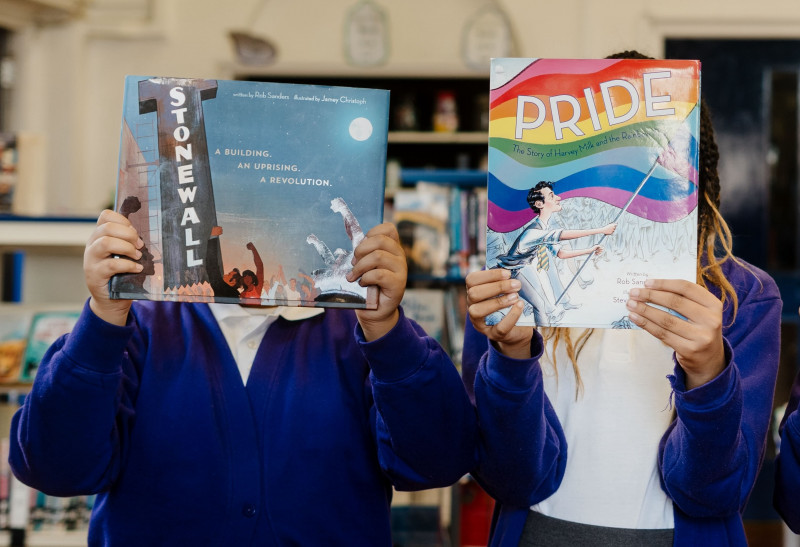Written byAnthony Legon
Co-CEO & Co-Founder
See More
We are living through a period where LGBTQIA+ people are yet again having to fight for their right to exist and be represented, and this has unsurprisingly permeated through to a discussion around which books are ‘appropriate’ to share with school-age children, in a way that will feel very familiar to those of us who were educated through Section 28 – the law brought in by the Conservative government in 1988 to prohibit the ‘promotion of homoscxuaIity’ in schools. Those who argue against teaching children about the existence of a group of people, as is so often the case with LGBTQIA+ people, regularly do so under the guise of ‘protecting children’, which, of course, feels like a very difficult argument to fight back against. So what are they trying to protect children from? ScxuaIisation, loss of innocence and grooming are often bandied around as the justification for bigotry and ignorance. The recently-published Cass Report has been weaponised and is now being used to further demonise the community.

However, if we want to truly protect children and preserve their innocence then we must teach them about the existence of LGBTQ+ people. Many of our children will grow up to be part of the Queer community and so we must protect them from being subject to further bullying and oppression by not only showing them we exist, but by letting others see into a world they may not otherwise have explored. We must shield them from growing up believing that their very existence is invalid or unwanted. We must shelter them from the heteronormativity that envelopes our everyday lives in a way that most of us don’t even notice. Innocence isn’t preserved by teaching children ignorance, hatred and fear but by teaching open-mindedness and inclusivity.
Objectively, there’s nothing wrong with teaching children that a group of people exist. We do it in every other aspect of social history. Transgender people, for example, were pivotal in the Stonewall movement and we can’t sensor history with a political motive to airbrush the roles of Sylvia Rivera and Marsha P Johnson. This argument equally stands for fictional Queer people who may or may not be the main characters in stories we read. Ultimately, we have to remember that all LGBTQ+ adults were once LGBTQ+ children and representation goes hand-in-hand with a sense of validity and legitimacy. This isn’t scxuaIisation or grooming, no more than it is for children to be exposed to cis-het relationships explored in almost every aspect of fiction and history.
We receive many questions from primary schools trying to navigate the complexities of having to justify a truly diverse curriculum, especially where pressure from parents, local authorities, dioceses and governing bodies sometimes seems suffocating. It’s worth remembering that the current RSE guidance states that ultimately it is down to schools to make the final decisions, and these decisions cannot be vetoed despite schools seeking engagement from stakeholders.
“The Department for Education will back schools that, having engaged with parents and carefully considered their views, take reasonable decisions about their Relationships Education policy.”
Unfortunately, RSE has been politicised and there is currently a consultation about the
revised RSHE guidance, to which you can find the link
here. This revised guidance seeks to prevent schools discussing anything relating to gender identity “schools should not teach about the broader concept of gender identity.” And more specifically should not use any “materials suggesting that someone’s gender is determined by their interests or clothing choices”. We know so many children who have been comforted and felt seen by books such as Julian is a Mermaid or My Shadow is Pink, which would inevitably be withdrawn from classrooms should this statutory guidance be pushed through. We know these books don't push any supposed agenda but give simply give children permission to explore their sense of self and to avoid the pressure to confirm to stereotypes or labels.
This brings us on to the vitalness of literature whether for seeing others represented, or being seen. There should be no gatekeeping of literature, under the guise of protecting, preserving or otherwise, and we will unapologetically include truly diverse books on our lists and within our curriculum maps that represents all lives, experiences, families and relationships. Literature, whether fictional or otherwise, serves to broaden our thinking beyond our immediate perspectives and presents us with a window to the world. Never has a book served to promote a way of living, nor act as propaganda for a ‘lifestyle’. However, it has been a best friend, a confidante, a mirror, a window, a doorway.

And Tango Makes Three is such a great text to explore that families can exist beyond the archetypal tropes, but is ultimately a true story about some penguins that actually existed in New York Zoo. Pride by Rob Sanders is a truly superb biographical narrative that teaches us about the life of Harvey Milk and the development of the first Pride flag – as is Stonewall which tells the narrative of the Stonewall Riots through the history of the building they started in. Nen and the Lonely Fisherman is a beautiful story about love and companionship – as is Hello Sailor. Authors like Lee Newberry and Ian Eagleton are writing brilliant books for middle-grade readers and Sarah Hagger-Holt and Benjamin Dean are writing wonderful stories for older primary readers and young adults. That’s just the start – there are so many truly inspiring tales and histories being written down for children to explore, but if we’re not allowed to teach these books or stock them on the shelves of our libraries, publishers won’t publish them and generations of children will miss out on the magic, escapism and affirmation of these books.
We will go on shouting about this vital literature. We will continue to include it on our book lists and we will persevere in making it a fundamental part of our curriculum maps. This Pride month we’ll be making noise about our favourite books and authors on socials, and spotlight fresh offerings in our Literature Review. But it’s not just for June. We will continue showcasing new writers and books that tell Queer stories long after the flags are taken down. Our LGBTQIA+ Representation Teacher Advisory Panel will go on endorsing authors that represent a truly diverse range of characters, families and stories when the tokenistic Pride flags disappear from massive corporations’ logos. We will continue to make noise about marginalised and under-the-radar authors once the rainbows have been removed. Why? Because representation matters; diversity matters; inclusion matters – and will continue to matter long beyond the legacy of any report, policy or guidance, and schools need to be where this crucial conversation begins.
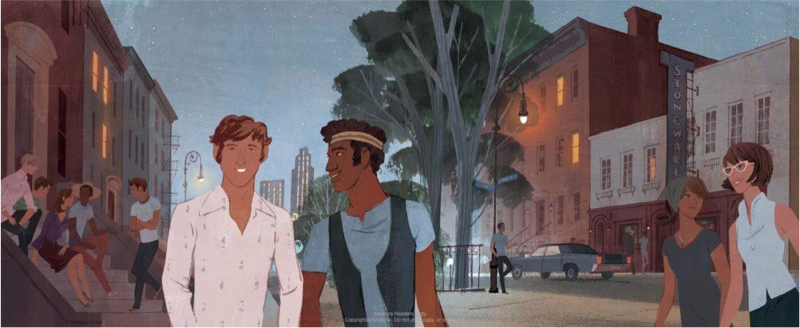
Posted in: Curriculum | Book Choice | Diversity
